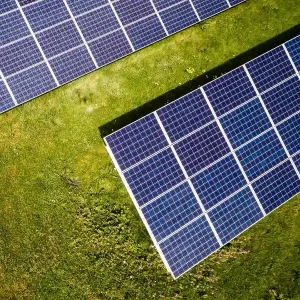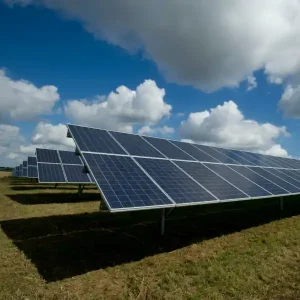Welcome to the sunny side of energy savings! Have you ever wondered how you could harness the power of the sun to not only reduce your carbon footprint but also save some serious cash? Well, you’re in luck! In this article, we’ll dive into the world of solar energy incentives, exploring tax credits and rebates designed to make residential solar installation more accessible and affordable. So, grab your shades and let’s shine some light on these amazing incentives!
Why Go Solar?
Let’s kick things off by exploring why solar energy is such a bright idea for homeowners:
Environmental Benefits
By generating electricity from the sun, you’re reducing your reliance on fossil fuels and cutting down on harmful greenhouse gas emissions.
Financial Savings
With solar power, you can significantly lower your monthly energy bills and even earn credits for excess energy produced.
Increase in Property Value
Installing solar panels can boost the resale value of your home, making it a wise long-term investment.
The Federal Solar Tax Credit
Ah, the Federal Solar Investment Tax Credit (ITC) – it’s like getting a sunny bonus from Uncle Sam! Here’s what you need to know:
What is the Federal Solar Tax Credit?
It’s a federal incentive that allows homeowners to deduct a percentage of the cost of their solar energy system from their taxes.
How Does the Federal Solar Tax Credit Work?
When you file your taxes, you can claim a credit equal to a percentage of your solar investment, reducing the amount of tax you owe.
Qualifying for the Federal Solar Tax Credit
To be eligible, you must own your solar energy system and have sufficient tax liability.
State and Local Rebates
Many states and local governments offer additional incentives to sweeten the deal for solar adopters:
Understanding State and Local Solar Rebates
These are cash incentives or discounts offered by state or local governments to help offset the cost of solar installation.
How to Claim State and Local Rebates
Each rebate program may have its own application process, so be sure to check the requirements for your area.
Eligibility Criteria for State and Local Rebates
Eligibility requirements may vary, but they often depend on factors such as the size of your solar system and your location.
Solar Renewable Energy Certificates (SRECs)
Ever heard of SRECs? These little gems can put even more money back in your pocket:
What Are Solar Renewable Energy Certificates?
SRECs are tradable certificates that represent the environmental benefits of generating electricity from solar energy.
How Do Solar Renewable Energy Certificates Work?
When you produce solar energy, you earn SRECs, which can then be sold on the open market to utilities or other entities that need to meet renewable energy requirements.
Selling Your SRECs: Maximizing Returns
By selling your SRECs, you can earn additional income on top of the savings you’re already enjoying from your solar panels.
Making the Switch: Tips for a Smooth Solar Transition
Ready to take the plunge into solar energy? Here are some tips to help you make the transition:
Conducting a Solar Assessment
Start by assessing your home’s solar potential to determine the best location for your panels and estimate your potential savings.
Choosing the Right Solar Installer
Do your research and find a reputable solar installer who can guide you through the process and ensure a smooth installation.
Maximizing Your Solar Savings
Consider options like solar battery storage and energy-efficient appliances to further maximize your savings and reduce your reliance on the grid.
Conclusion
In conclusion, solar energy incentives make going solar more affordable and accessible than ever before. From the Federal Solar Tax Credit to state rebates and SRECs, there are plenty of opportunities to save money while reducing your environmental impact. So, why wait? Start soaking up the savings and join the solar revolution today!
FAQs
Can I still qualify for the Federal Solar Tax Credit if I lease my solar panels?
Unfortunately, the Federal Solar Tax Credit is only available to homeowners who own their solar energy systems.
How long will the Federal Solar Tax Credit be available?
The tax credit is currently scheduled to step down over the next few years, so it’s best to act sooner rather than later to maximize your savings.
Are solar rebates taxable?
In most cases, solar rebates are not considered taxable income, but it’s always a good idea to consult with a tax professional to be sure.
Can I claim both the Federal Solar Tax Credit and state/local rebates?
Yes, in many cases, you can stack federal, state, and local incentives to maximize your savings on solar installation.
What happens to my solar panels if I sell my home?
Solar panels can increase the resale value of your home, but if you decide to move, you can either transfer the solar agreement to the new homeowner or negotiate the removal of the panels as part of the home sale.




